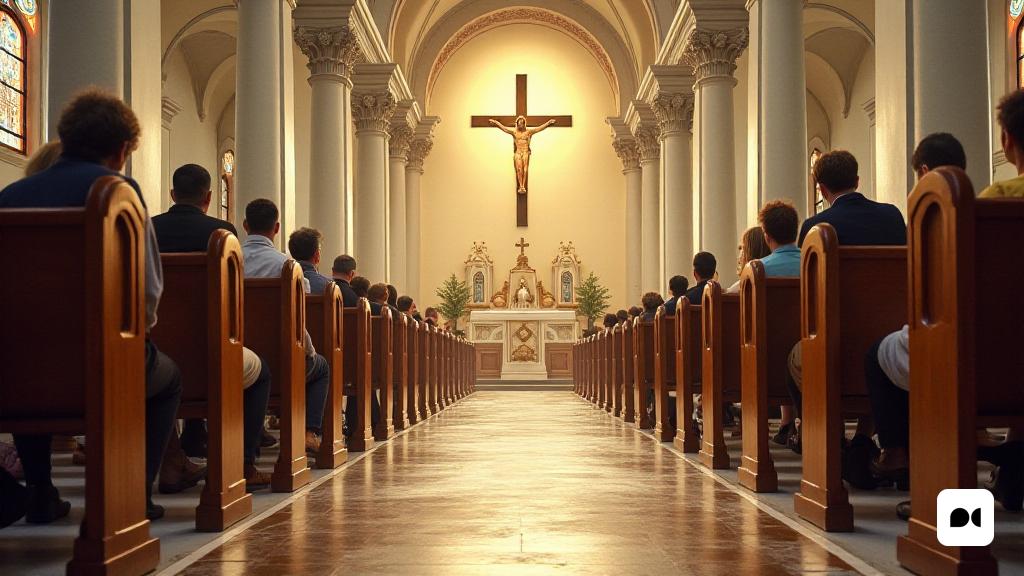Growing trends in religious practice
An increasing number of Christians in Catalonia chooses to live their spirituality in Spanish, a tendency that, according to the recent data of the barometer on religiosity, seems to remain ascent. This study, carried out by the Center for Opinion Studies of the Generalitat in 2023, reveals significant details about language preferences in worship acts.
Language preferences in worship acts
The survey indicates that most Catholics (41%) attend religious services in both Catalan and Spanish, while 36% prefer Catalan exclusively and 19% focus on Spanish. In the case of Protestants, the situation is clearly different: 54% celebrate in Spanish, with only 14% using Catalan exclusively.
Communication between attendees
Regarding the communication between the faithful, most Catholics communicate in Spanish (41%), while 28% do so in Catalan and 27% use both languages. Protestants, on the other hand, show a predominance even more marked in Spanish (59%).
The diversity of beliefs and the influence of birth
The barometer data also highlight the differences in religious beliefs according to the origin. 71% of those born outside Spain are considered religious, compared to 35% of those born in Catalonia. These figures reflect a remarkable discrepancy in religious practice, which is accompanied by a decrease in birth rate among the local population.
Gender and generational differences
In addition, the study reveals that women over the age of 64 see God as a central figure in their lives, while the youngest are at the other end. Among the men are also similar patterns, with the eldest and younger ones showing greater devotion.
El Context Social i Cultural
In recent years, they have seen a significant migration that has changed the cultural landscape of Catalonia. Foreign women have a higher fertility rate than Spanish, with 1.32 children per woman compared to 1.06. This demographic dynamic contributes to the alteration of religious and linguistic balance.
Implications of bilingualism
With the dominant Spanish in religious communication and worship, this tendency is expected to be maintained, with imperfect bilingualism that could further displace Catalan. The situation is complicated by the lack of interest on the part of the young Catalans, who are distanced from their faith.
Challenges and opportunities for the future
In order to revitalize the use of Catalan in religious practice, the Church must adapt to new social and cultural realities. The integration of newcomers and their ability to learn the local language are essential. However, the exclusive use of Catalan in religious acts could be counterproductive, causing the abandonment of the Church by many faithful.
The importance of communion
Communion between the faithful must be a priority, and bilingualism can be the key to maintaining this union. The current reality demands a deep reflection on how to deal with linguistic and religious identity in Catalonia, without falling into the imposition of a monolingualism that could be detrimental to the Church.
Final reflections
The linguistic diversity and the rich religious tradition of Catalonia are a heritage that must be preserved. The task of building an inclusive future is to recognize and respect the different realities and needs of its inhabitants, fostering an open dialogue that enriches both society and spiritual life.

